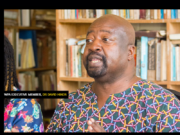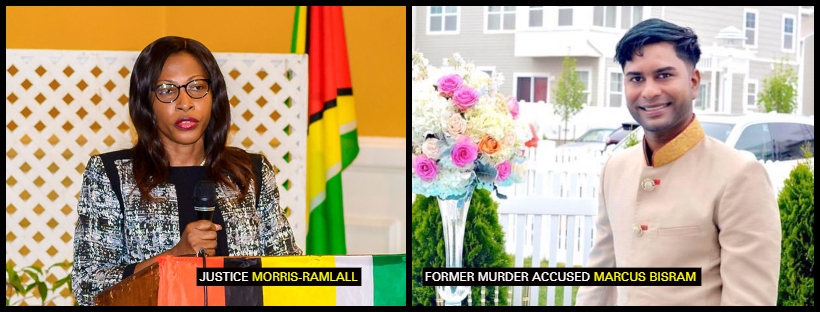Former murder accused Marcus Bisram has moved to the Court of Appeal, asking to be awarded monetary damages for the time he was unlawfully sent to prison due to the actions of the Director of Public Prosecutions (DPP), Shalimar Ali-Hack.
Bisram, through his Attorney-at-Law Arudranauth Gossai contended that “the Learned Judge erred in law when she refused to order monetary/vindicatory damages to the Appellant for the period of time he was unlawfully imprisoned due to the actions of the Director of Public Prosecutions and the State.”
He is also appealing Justice Morris-Ramlall’s judgment, where she ruled that Section 72 of the Criminal Law (Procedure) Act, Chapter 10:01 is not unconstitutional.
“The Learned Judge erred in law when she found that section 72 of the Criminal Law (Procedure) Act, Chapter 10:01 was not unconstitutional by basing her ruling on cases decided in this country prior to the enactment of Article 122 A (1) of the Constitution of Guyana when those cases do not any longer represent the law,” Bisram argued.
In June last, Justice Morris-Ramlall ruled that the DPP’s directive to Magistrate Renita Singh, who had discharged the charge against Bisram following a Preliminary Inquiry (PI), was unlawful. The Judge had also ordered that Bisram be immediately released from jail, where he had been on remand pending trial.
In her 32-page judgment, Justice Morris-Ramlall noted that the evidence disclosed by the prosecution did not meet the requisite evidentiary threshold to support calling upon Bisram to lead a defence at the close of the prosecution’s case. As a matter of fact, the Judge held that no prima facie case had been made out against him to put him on trial by a jury before a judge.
“…The evidence is insufficient, or, in other words, it is not of the quality that a reasonable jury properly directed could safely convict on it. The state or extent of the evidence is a relevant factor that should have been taken into account by the DPP in arriving at her decisions,” Justice Morris-Ramlall underscored in her judgment.
Taking this into consideration, Justice Morris-Ramlall further held that the DPP did not lawfully exercise her discretion under Section 72 of the Criminal Law Offences Act, Chapter 10: 01, for Bisram to be committed, and that the committal by the Magistrate cannot stand.
Hence, the Judge issued an order quashing the DPP’s directive for Bisram’s committal; an order that the arrest of Bisram on March 30, 2020, was unlawful; an order that the continued incarceration of Bisram since his arrest on March 30, 2020, is unlawful; another order compelling the DPP, Attorney General and Commissioner of Police to release Bisram from custody forthwith; and a next order preventing the DPP from bringing a murder charge against Bisram in the High Court.
The DPP later appealed Justice Morris-Ramlall’s judgment, which was followed by Bisram. On January 13, 2021, Chancellor of the Judiciary Yonette Cummings-Edwards and Justices of Appeal Rishi Persaud and Dawn Gregory-Barnes will continue hearing arguments from the DPP.
It is alleged that between 31 October 2016 and 1 November 2016, Bisram coerced, procured, and commanded five persons to murder Narinedatt.
Bisram was in 2017, taken into the custody of U.S authorities, and remained there up until his extradition to Guyana last year November.
It is alleged that he ordered the murder of Narinedatt, who was a guest at a party he hosted at home in Berbice. It is alleged that the young carpenter Narinedatt was beaten by several men. He was then pushed into the trunk of a car, taken to the Berbice public road, dumped, and run over to make it appear as if it was a hit-and-run accident.
It was reported that after the killing, Bisram fled to the United States of America.













